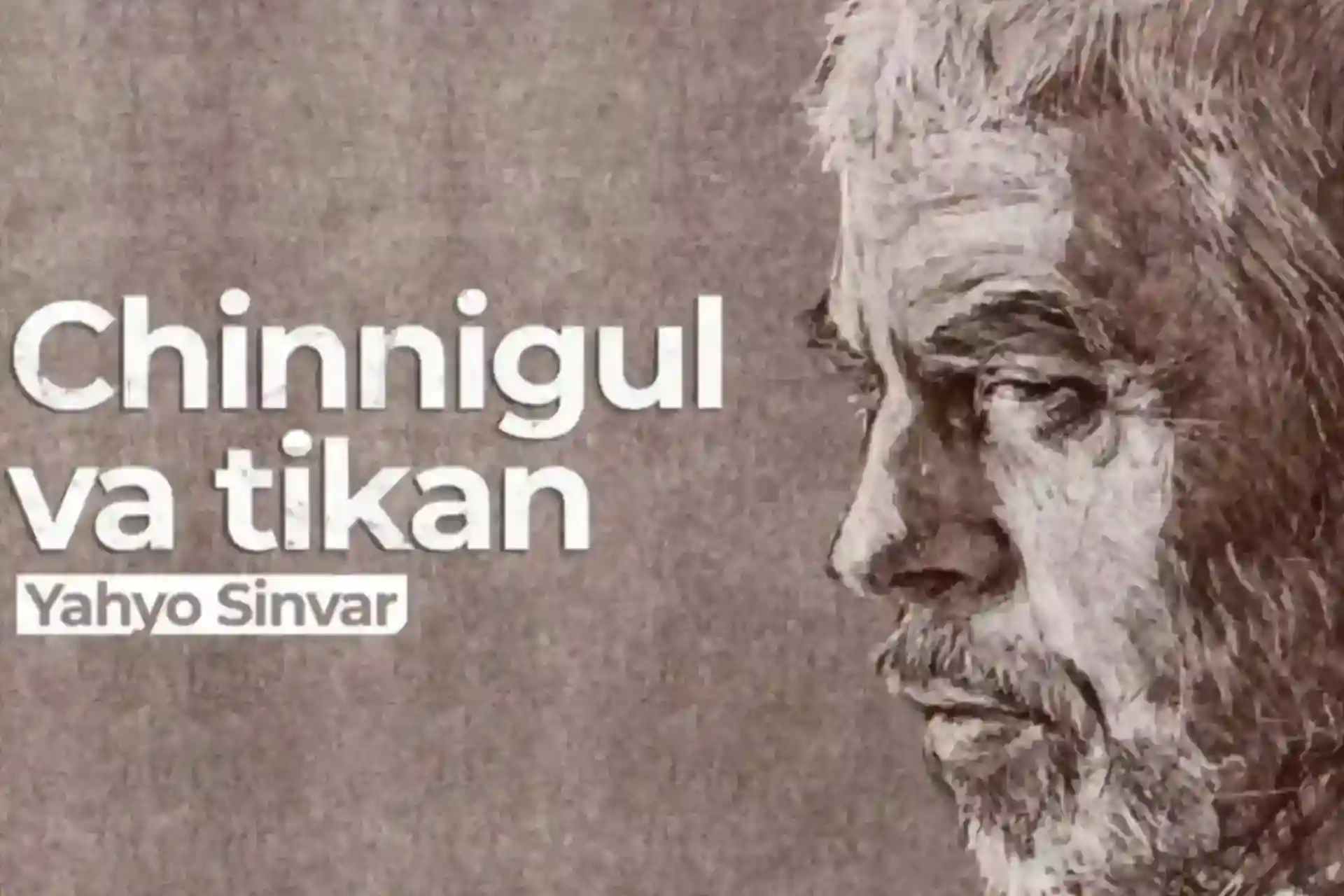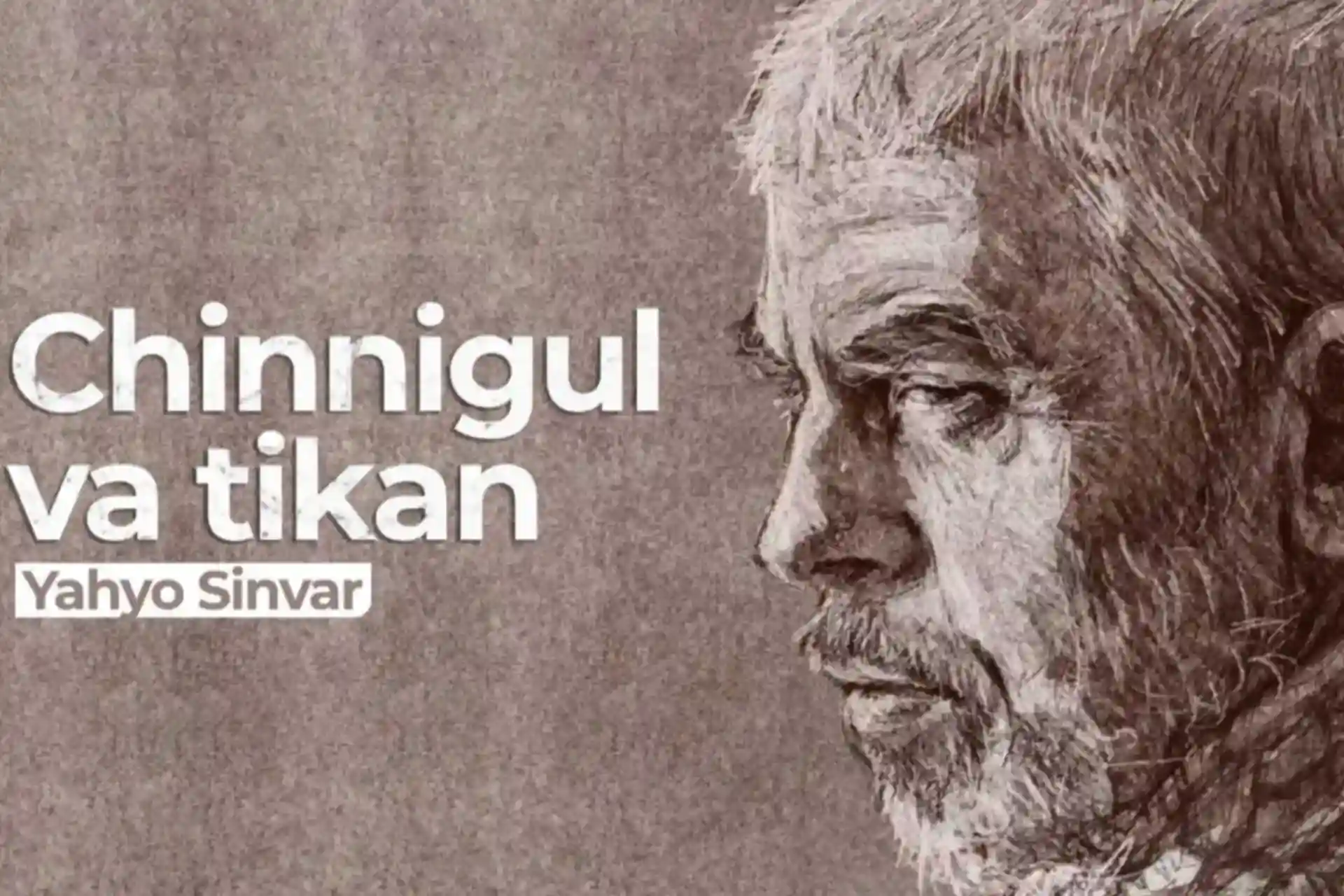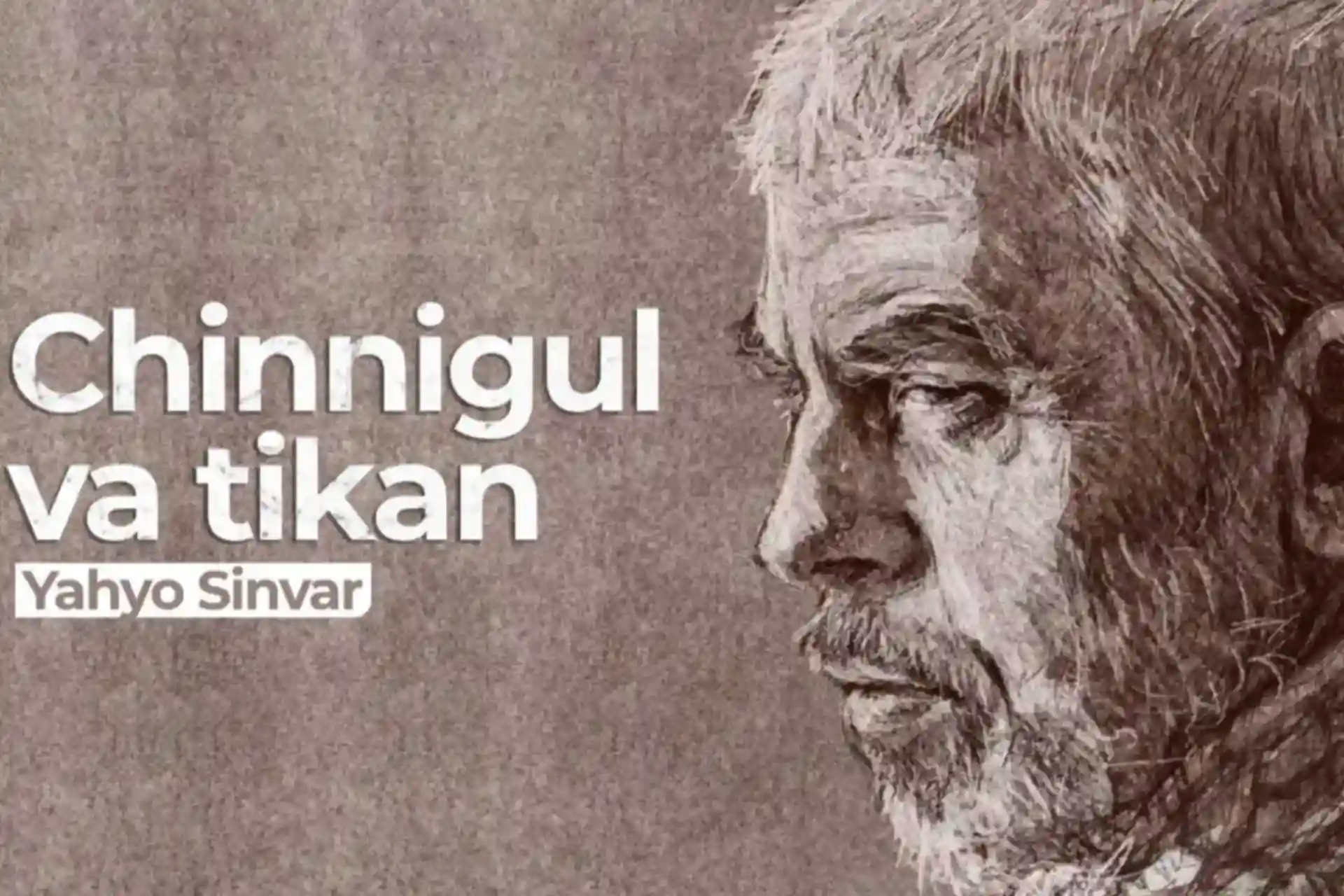25.02.2025 09:11
541
"The Carnation and the Thorn" – Yahya Sinwar (story, part 33)
Season 12
My aunt's husband (Abdulfattah Pochcha) had already served his prison sentence. After his release, he resumed his business, farming, and animal husbandry. Before he was released, his son Abdurahim had already started his journey.
Abdulfattah often visited shops in the small town of Khalil, where he had strong commercial connections. They would sit and chat in one of the shops, drinking tea. The merchants would ask Abdulfattah questions about life in prison. How were they treated there? What tortures were they subjected to? What charges were they brought against them? Abdulfattah would humbly answer, "It's bearable," so as not to scare people away from the invaders and prisons. He would also add: "It's true that being a prisoner is not easy. But it's bearable. It strengthens the will. A person begins to understand himself, understands what his strength is."
The merchants who listened to this speech nodded their heads in agreement. Some of them looked at their partners in surprise, and perhaps after Abdulfattah left, one of them said, "Look at this scoundrel. He's going to make his family suffer, put himself in a similar situation, and then say, 'I can't bear it anymore!' It's a dry statement."
His brother Abdurahman was studying at the final stage of the Tariq ibn Ziyad Higher Institute in Khalil. This young man was known for his behavior, diligence, piety, and warm relations with people. He was known for his beautiful qualities among the students of the city where he studied and the surrounding villages. At that time, religious students who followed the religious trend began to form among the students of this institute. The teachers of this institute had studied in Jordan. While studying there, they joined the Muslim Brotherhood. When they came to Khalil and started teaching, they began to instill their ideas in the minds of the students. As a result, they gathered around them students who warmly accepted their ideas.
At that time, the Sharia Faculty was also opened at the university. The mayor himself was the one who oversaw its opening. After the young men gathered at this faculty, political and intellectual movements began to emerge. The most famous of these was the Muslim Brotherhood movement. The reason for this was the introduction of the ideas of this movement by the instructors.
A number of young men began to gather as the seed of this movement. Their actions, in addition to the support of their teachers, began to spread widely. In the Gaza Strip or in the northern West Bank, the name of the Muslim Brotherhood was not accepted as simply as in Khalil, it was used to insult and humiliate. In Khalil, however, this group had its own history. Since well-known and famous families in Khalil belonged to the ideas of this group, its name was also easily accepted.
Thus, students from the city and village who studied at the Tariq ibn Ziyad seminary began to receive lessons from the teachings of the Muslim Brotherhood in a narrow circle. Among them was Abdurahman. In his textbook, a section on modern Islamic ideas was added to the Islamic lessons. One day, a group of those young men came to the village of Surif to visit Abdurahman. This is one of the unique activities of the Muslim Brotherhood, in which they connect and believe. Abdurahman's friends, who had become guests, went out to the hill to play, then sat down and talked about religion and politics. At that time, Abdulfattah was preparing food for his younger brother's friends. Abdurahman had slaughtered four chickens in the morning and was preparing to welcome his friends. Abdulfattah the Pooch had already prepared lunch, but worried that his brother would not come to pick it up, he decided to take it himself. As he took it to the hill and gave it to his brother, his brother said:
"You're busy, brother. I was just about to go and get it myself."
Abdulfattah replied:
"No problem. I'm just meeting your friends under the pretext of meeting them."
Abdulfattah also sat with them and had lunch. They chatted, laughed, and chatted. Abdulfattah began by asking his brother's friends about patriotism:
-What is your opinion about patriotic work? One of them answered:
-The problem is that our people have not yet found the important factors in the patriotic struggle. The level of readiness and sacrifices on this path is extremely low!
Abdulfattah was a little excited:
"How can you say that?! What do you have to base your claim on?"
-Because the issue is of Islamic importance. The issue of Al-Aqsa, the first of the two qiblas and the third of the three holy places, is at stake. This requires more sacrifices than the issue of patriotism. And people's readiness for this is a million times less than necessary.
Abdulfattah continued to argue and said:
-You seem not to have heard of the sacrifices in Gaza, the West Bank, Jerusalem, and many villages?
- I have heard everything you say, I know. But all this is far less than necessary. Brother... Have you not seen how freely the Jews walk in Hebron? No one can resist them. You do not see the tourists coming to visit the Haram, the Jews are shouting and having fun in the Haram of Abraham. Have you not seen how freely they come to the markets and trade with the Palestinians? They walk as if they are not invaders. They are calm, as if they have not taken our lands.
At this point, Abdurahman joined the conversation:
"Undoubtedly, patriotic fervor alone is not enough for the struggle. I will add to this..." Abdulfattah began before he could finish his sentence:
"Brother, these people of ours have been defending their land for so long. They won't give up. What about them..." he said, and before he could finish, the young man interrupted him and began to speak:
-Shall I tell you a story that happened to me? Well, I was still a young child when the invaders invaded our country. When I saw a Jew walking freely on Khalil Street, I got angry, picked up a stone, threw it at the Jew, and then hid behind a tree. I hid until I thought that the Jew had already left. Before I could come out, our neighbor's son started calling, "Jamal. Jamal. Come out, he's gone." I went out from behind a tree. The Jew was hiding behind a house, and he caught me and pointed a gun at my head. He told me not to do that again and started to scare me. I knew then that the Jewish neighbors I had thrown stones at had knocked on my door and threatened to find me, or if they didn't, he would imprison their children. After that, one of the neighbors called his son to help him catch me.
Abdulfattah interrupted him and began to speak himself:
-Yes, it could be, it could be. But people are good, our nation is good.
"I also say that our people are good, even people like that are good. They are actually good people, but they are afraid of harm. They are not very prepared for sacrifice... That is why they conduct long operations..." Before he could finish speaking, Abdulfattah interrupted again and said:
-Hey kid. There's no need for any practice. Everyone should do their best, that's all. Why am I bothering you with all this talk..?! It's better if I go and you guys have fun..
Abdulfattah gathered up his skirts and said to the young men, "Welcome! Welcome! Sit down nicely! Assalamu alaykum wa rahmatullahi wa barakatuh," and left. The young men spent the day playing and having fun under the olive trees.
To be continued...



